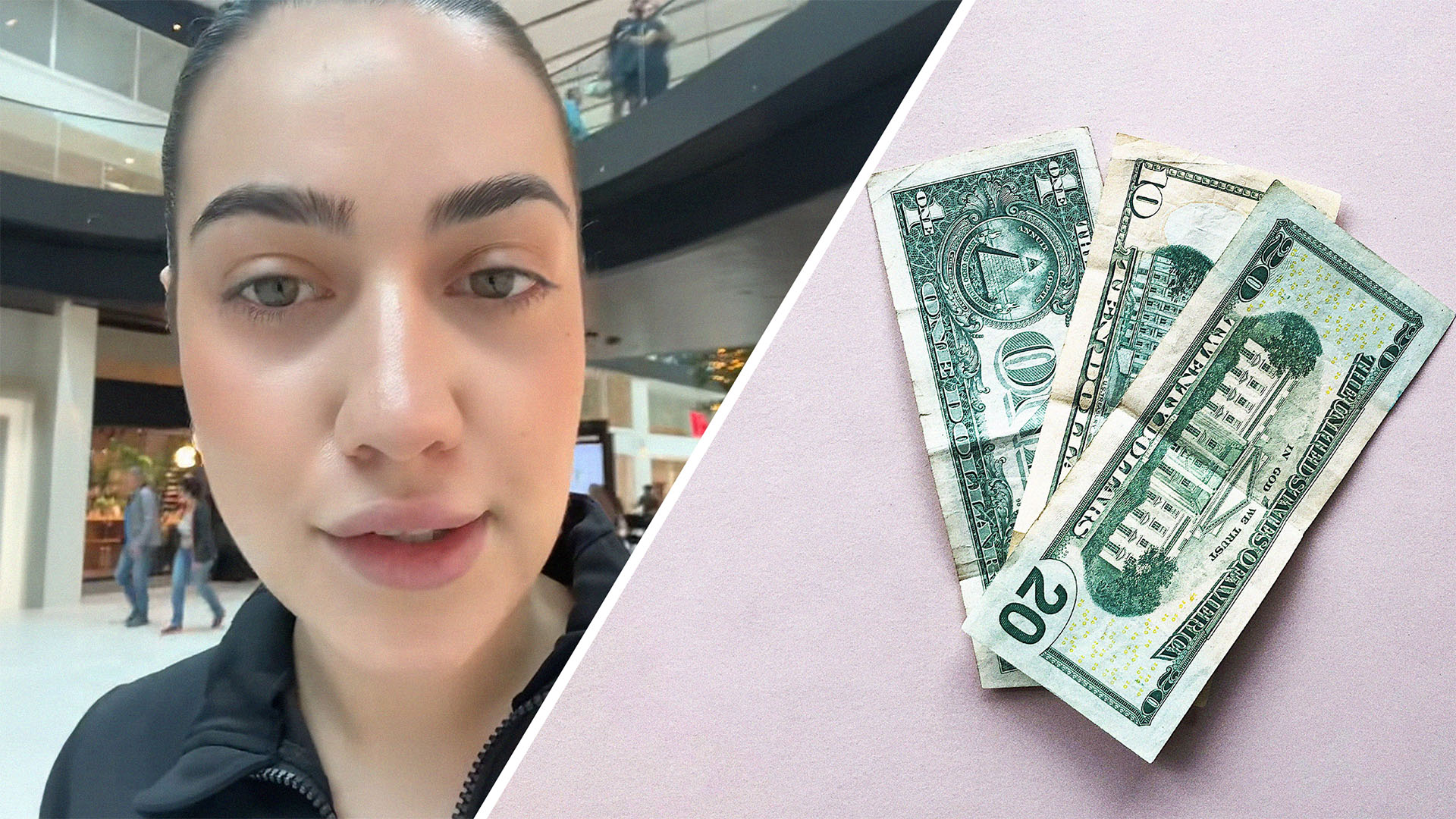
A woman’s experience with a cashier has people questioning whether people’s basic math skills are in a steep decline. Canada-based Viktoriya (@viktoriyaonline) revealed in a TikTok how a cashier’s mistake led her to be $15 richer.
Viktoriya shared her story to 230,000 followers, saying she needs folks to “start paying with cash because I think people are really bad at math.”
“I just gave a woman at a store exactly how much money,” she continues. Viktoriya says she handed the cashier $65 and received $15 in change, despite her item costing $65.
“I don’t know why, it wasn’t on sale,” the creator continues. “I checked the receipt.”
She concludes her video by reiterating that she needs people to “start paying in cash.” She didn’t disclose whether she gave back the money.
Why is her story so common?
Viktoriya’s TikTok led to an outpouring of viewers sharing similar stories in the comments section. Their frustration with the current retail workers’ lack of math skills was palpable.
“I paid cash the other day, it was 18.05. I gave 20.05 she’s like can u just give me 20? I’m like no..?” a top comment read.
Another said, “I gave a cashier $20.65 when the total was $15.65 and she just kept staring at the change in her hand and I thought I had shorted her and asked how much I gave her and she replied ‘sorry, I’m not very good at counting change.’”
But why do people give ‘extra’ money in the first place?
There may be a couple of reasons why shoppers hand over some change when paying. For some, it’s to get rid of any loose change they are carrying around. Plus, cashiers benefit by having ample change for other customers. For others, it’s so they can get back a solid bill without any coins (again, to have less loose change).
However, this is not as widely practiced in the U.S. as in other regions. For instance, in places like Latin America, it’s quite common for the cashiers to ask outright if you have any loose change, even if you have a big enough bill to cover your items.
“This is a US thing !!! I’m Canadian and every time I try to give money in order to get rid of my coins and get exact change they look at me crazy,” another commenter wrote. “Like I’ll give 20.65 if it’s 13.65 so they give me back only bills (say a 5 and two 1’s) and they give me back the 0.65 and say I gave too much. Yes I know I gave too much, that’s the point !”
Is there a decline in mental math skills?
This debate is nothing new. A plethora of TikTok videos have discussed this same phenomenon–from both sides. Some customers are complaining about cashiers’ lack of basic math skills, and retail workers themselves have shared what it’s like to be on the receiving end of loose change.
As for the latter, some claim it “messes up” with the register as they have already input the bill the customer gave them. Adding a quarter or a penny would mean they have to “do it all over again.”
Customers claim that if they knew basic math, they wouldn’t have to.
The reverse also occurs, where cashiers ask customers for extra money if they are short on loose change, and confuse the shopper for doing so.
There have been several reports of math skills declining in the U.S., with a Time article revealing that math scores haven’t improved since 2019. One of the experts cited in the piece attributed the decline to the pandemic. While the report was released in 2022, a more recent one from 2024 does not bode well, either. Chalkbeat reveals how “U.S. fourth graders saw their math scores drop steeply between 2019 and 2023 on a key international test even as more than a dozen other countries saw their scores improve.”
@viktoriyaonline You guys need to start paying with cash ???
♬ original sound – viktoriyaonline
How technology has changed retail
It also goes without saying how technology has made it even easier for folks to bypass the need to do math in their heads. With a built-in calculator at our fingertips, cash registers telling us exactly how much change to give back, and people mostly paying by credit card, it’s not hard to see why cashiers struggle when presented with cash.
Should cashiers be held accountable for their lack of math knowledge? Or is it a more systemic issue? Either way, it’s not hard to fathom that the issue will become more prevalent to the point where technology makes even the most basic form of critical thinking obsolete.
The Mary Sue reached out to Viktoriya via TikTok direct message.
Have a tip we should know? [email protected]







